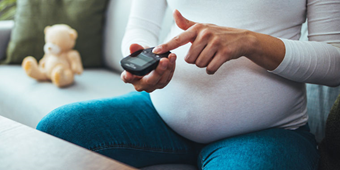Duchess Kate’s Severe Morning Sickness Rare but Manageable

Find Your Perfect Match
Answer a few questions and we'll provide you with a list of primary care providers that best fit your needs.
The acute morning sickness of Britain’s Duchess Kate, who is expecting her third child, has sparked concern and interest across the globe.
Premier Health Now talked with midwife Stacy Hudepohl, MSN, CNM, certified nurse midwife, Women’s Health & Wellness in Mason, Ohio, about the severe form of morning sickness called hyperemesis gravidarum.
Hudepohl says up to 95 percent of pregnant women feel some nausea during their first three months of pregnancy. For many women, morning sickness goes away after the first trimester, and it’s unusual to experience symptoms past 20 weeks.
For a small group of expectant mothers, however, symptoms can be severe and continue until the baby is born. An estimated 1 to 2 percent have hyperemesis gravidarum, with vomiting throughout the day and an inability to keep down food or fluids.
Hudepohl notes, “Babies take everything they need from their mom, so they’re protected. What concerns us with expectant moms are dehydration, weight loss, exhaustion and even anemia.
“In rare instances, a woman may need hospitalization to receive IV fluids for dehydration. We also have home therapies to deliver IV hydration and anti-nausea medication that’s safe for the baby. It’s likely Duchess Kate has something like this available to her.”
Morning sickness most likely is caused by pregnancy hormones, but no one knows for sure. Hudepohl does know that the majority of women can find relief from morning sickness.
“It’s trial and error to find a diet that works for you — it could be crackers or a cheeseburger,” she says.
For milder cases, she recommends remedies like wearing a sea wristband, an acupressure device often used for motion sickness. Soaking cotton balls in peppermint oil and smelling them when you feel nauseated also helps many women. In addition, B6 and B12 vitamins may help soothe the stomach; bed rest is also beneficial.
If these don’t work, anti-nausea medications may help. Hudepohl comments, “Between diet, medications and other therapies, we can usually find something that works to make a woman with morning sickness feel more comfortable.”
Find Your Perfect Match
Answer a few questions and we'll provide you with a list of primary care providers that best fit your needs.
Source: Stacy Hudepohl, MSN, CNM, Center for Women’s Health & Wellness, Mason, Ohio




